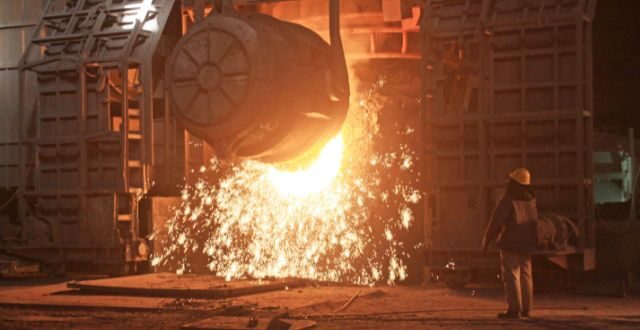Furnaces have undergone significant transformations, evolving into highly efficient and user-friendly systems.
Leading HVAC companies, like Lennox, have been instrumental in this evolution, introducing innovative designs and technologies that enhance furnace performance.
This article explores these advancements, offering insights into how they contribute to more effective and sustainable home heating solutions.
High-Efficiency Furnaces: The New Standard
Modern furnaces have set a new benchmark in efficiency. High-efficiency models are designed to maximize fuel conversion to heat, significantly reducing waste and heating costs. These advancements are exemplified by condensing furnace technology, which captures and uses heat from exhaust gases – something older furnace models would let go to waste.
The efficiency of a furnace is measured by its Annual Fuel Utilization Efficiency (AFUE) rating, with higher ratings indicating better fuel-to-energy conversion. High-efficiency furnaces lower operational costs and aid the environment by lowering consumption of fuel and greenhouse gas emissions.
Enhanced Durability and Reduced Maintenance Needs
Another crucial advancement in furnace design is modern systems’ enhanced durability and reduced maintenance needs. Manufacturers have focused on making furnaces more robust and less prone to breakdowns, ensuring they can withstand prolonged use without frequent repairs.
This durability stems from the use of higher-quality materials, improved manufacturing processes, and innovative design elements that reduce wear and tear on the furnace’s internal components.
Modern furnaces operate more efficiently for longer periods, reducing the frequency of maintenance. For instance, newer models might feature self-cleaning components or advanced diagnostics that alert homeowners to potential issues before they escalate into major problems.
This proactive approach to maintenance extends the furnace’s lifespan and contributes to consistent performance, ensuring that the heating system remains reliable year after year.
Furthermore, these advancements in durability and maintenance translate into cost savings for homeowners. By investing in a furnace that requires less frequent repairs and can operate efficiently for a longer period, homeowners can save on repair costs and the potential need for early system replacement.
This focus on long-term durability and ease of maintenance is a significant aspect of modern furnace design, contributing to overall homeowner satisfaction and cost-effectiveness.
Smart Thermostat Integration
The integration of smart thermostats has redefined furnace operation. These advanced thermostats enable remote control of heating systems via smartphones and other devices, offering unprecedented convenience and control.
Integrating smart home ecosystems allows the thermostat to adjust heating based on routines and external weather conditions, ensuring optimal comfort while enhancing energy efficiency. Furnaces with smart thermostat capabilities offer user engagement and system management that significantly boosts system performance and convenience.
Variable Speed Blower Motors
Variable-speed blower motors represent a notable advancement in furnace technology. These motors adjust their speed to control airflow precisely, ensuring uniform temperature distribution and eliminating uncomfortable temperature variances. This constant air circulation at varied speeds also improves air quality, as the air is continually moved through the furnace’s filtration system.
Furthermore, variable-speed motors are quieter and more energy-efficient than their single-speed counterparts, contributing to a more comfortable and cost-effective home environment.
Eco-Friendly and Sustainable Options
Sustainability is a driving force behind recent furnace innovations. Eco-friendly furnace designs focus on utilizing renewable energy sources or being compatible with low-emission fuels. Innovations include solar-powered furnace systems and models designed to operate on biofuels.
Furthermore, manufacturers increasingly use recyclable materials in furnace construction and focus on producing units with extended lifespans, reducing environmental impact and waste.
Advanced Air Filtration Systems
Air quality is a critical consideration in modern furnace design. Contemporary models often feature advanced filtration systems capable of removing a broad range of airborne contaminants, including allergens and pollutants.
These systems typically employ high-efficiency particulate air (HEPA) filters or similar technologies to ensure that the air circulated through a home is warm but also clean and healthful. This feature is helpful for people with allergies or respiratory conditions, contributing to a healthier indoor living environment.
Purchasing from Reputable Suppliers Online
When upgrading or replacing a furnace, it is vital to purchase from reputable suppliers. Trusted suppliers provide quality products, ensuring compatibility and reliability. Online suppliers offer the convenience of comparing different models, accessing comprehensive product details, and often providing customer support.
This helps homeowners make informed decisions, ensuring they choose a furnace that meets their needs and offers optimal performance and efficiency.
Conclusion
In summary, the latest furnace design and performance innovations, have greatly enhanced home heating systems. High-efficiency models, smart thermostat integration, variable speed blower motors, eco-friendly options, and advanced air filtration systems have collectively transformed how furnaces heat homes.
These advancements improve comfort and efficiency and align with environmental sustainability goals. Homeowners can enjoy a modern, efficient, and environmentally responsible heating solution by staying informed about these innovations and choosing products from reputable suppliers.
 khamush.com Lifestyle | Motivation | Poems
khamush.com Lifestyle | Motivation | Poems



